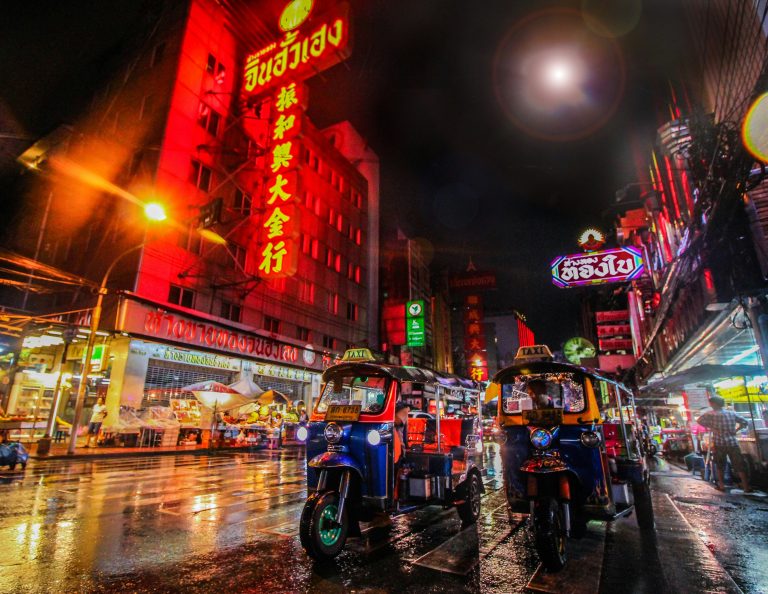Editor’s note: Gu Junqing grew up in a Christian family and came to believe in the Lord at an early age. In this third part of his story, he says Christians should be careful not to present unbelievers with a warped version of faith. He warns against sharing a “fast food” gospel that only focuses on God’s love, and not on the repentance and obedience that is also a part of the Christian faith. He believes a strong foundation in Scripture and deep study of the Bible would help address these issues in evangelism and discipleship.
This story is part of an ongoing series of interviews with Chinese Christians about how they came to know and follow God, and has been edited and condensed for clarity and length. Parts one and two of Gu’s story can be found here.
Only Told Part of the Truth
China Partnership: You think it was easier [to share the gospel] in college. Why?
Gu Junqing: Not all the people who prayed the sinner’s prayer were really believers. If ten people prayed the sinner’s prayer and were converted, after they graduated and went to work, probably only two people truly believed and persevered. One of the main reasons evangelism was easy in college is that a lot of ministry organizations made the gospel look easy and gave no requirements. The gospel looked like a type of fast food.
“Evangelism should include more teaching of the Bible and of truth. This should help those who accept the faith in college not to give up when they get into society.”
If you only say, “Jesus loves you,” people are very receptive. They want to be blessed if you say only good things, not: “You have to obey Jesus; you have to repent.”
Another reason it was easier to evangelize at the university is because college students are more innocent. They trust more easily. But once they get into society, they become more complex. There are a lot of factors that determine whether they accept the faith or not.
A Strong Foundation
CP: Some studies say many urban Chinese Christians are relatively young and came to faith in college. Is that also the case in your own experience?
Gu: Yes. That is why I still think it is important to preach the gospel in college. But I feel that evangelism should include more teaching of the Bible and of truth. This should help those who accept the faith in college not to give up when they get into society.
They were not taught enough about the Bible; they were only told part of the truth. They thought the Bible was only saying that Jesus is love. There is a lot of grace and acceptance – but they didn’t understand there are a lot of commands in the Bible. They also need to obey God, deal with their sins, and repent.
I think the answer is to teach the Bible more deeply. Using materials to replace the Bible is not effective. In the long run, it’s not good. Only God’s Word can help people become disciples. Young people who become Christians in college have very little understanding of the Word of God, and they rarely read the Bible. Something fundamental has not been done: reading and intensively studying God’s Word. Doing this brought me closer to God.
“The answer is to teach the Bible more deeply. Using materials to replace the Bible is not effective. Only God’s Word can help people become disciples. Something fundamental has not been done: reading and intensively studying God’s Word.”
For me, the atmosphere in college, and the family atmosphere of faith [before college] gave me a good foundation and allowed me to see what true faith was. In college, I learned how to evangelize. But if I didn’t have a foundation given by my family, I would have been enthusiastic in college, but after I started working, I would have been lukewarm, just like everyone else. For me, it was by God’s grace that I had a good foundation from my childhood. Then, in college I was exposed to teaching that helped me, after I started working, be willing to work primarily for the glory of God, rather than for money.
I thank God that he allowed me to have a good understanding of true faith. I think a good family foundation let me have this understanding. Even though I didn’t go through the Cultural Revolution, I did see [persecution]. While establishing a house church, my mom and her family were arrested by the police because the house church was illegal.
Christians Have Ultimate Hope
CP: Were you there?
Gu: Yes. They were arrested twice for gathering. According to the law in China, it was illegal to have more than ten people together in a room. They often came to our house, and they ended up being taken away for two days before they could return.
CP: You were home alone? How old were you?
Gu: I was a teenager in high school. But I wasn’t afraid. I prayed silently at home, and then told other brothers and sisters to be careful, because they would check my mom’s cell phone information to catch more people. At the time, I understood that this persecution was for God’s sake. Many people around us experienced much more severe persecution, such as going to jail or being beaten. She was only interrogated for two nights. This was the grace of God, as he doesn’t put things on you that you can’t bear.
“We are just pilgrims; we are travelers, strangers, here temporarily. In the end, we Christians have ultimate hope. The biggest problem Chinese people face is that they have no hope.”
Why did this matter make me more committed to my faith? It primarily has to do with a person’s state. The more you go through things like this, the more peace and determination you have in your heart, because God has done so much in you. He did so much in my mom’s heart, in my heart, and in the hearts of the brothers and sisters around me. The more things you experience like this, the more you feel God is real, and the more we have to rely on him. Many times, in an easy environment, our faith tends to slide. It is easier to lean on God when it’s hard. When you have no help, you seek God’s help.
The most important thing is to have a direction, to know where you came from and where you are going. We are just pilgrims; we are travelers, strangers, here temporarily. In the end, we Christians have ultimate hope. The biggest problem Chinese people face is that they have no hope. They only try to get what they can see at hand – earning money. They say, “I don’t care about the environment, I don’t care about the next generation. When I manufacture, it will pollute. I will consume as many natural resources as possible.” Because they have no hope, they just want to live their own life as long as they can, for their own sake. But I think Christians are different. If more people had this true faith, the current situation in China would be completely different.
Gu Junqing is a pseudonym for a Chinese believer. Gu grew up in a Christian family and has believed in Christ from an early age. He and his wife have two children.
FOR PRAYER AND REFLECTION
Pray for evangelism and discipleship in China that presents the full truth and depth of the gospel and of God’s Word.































